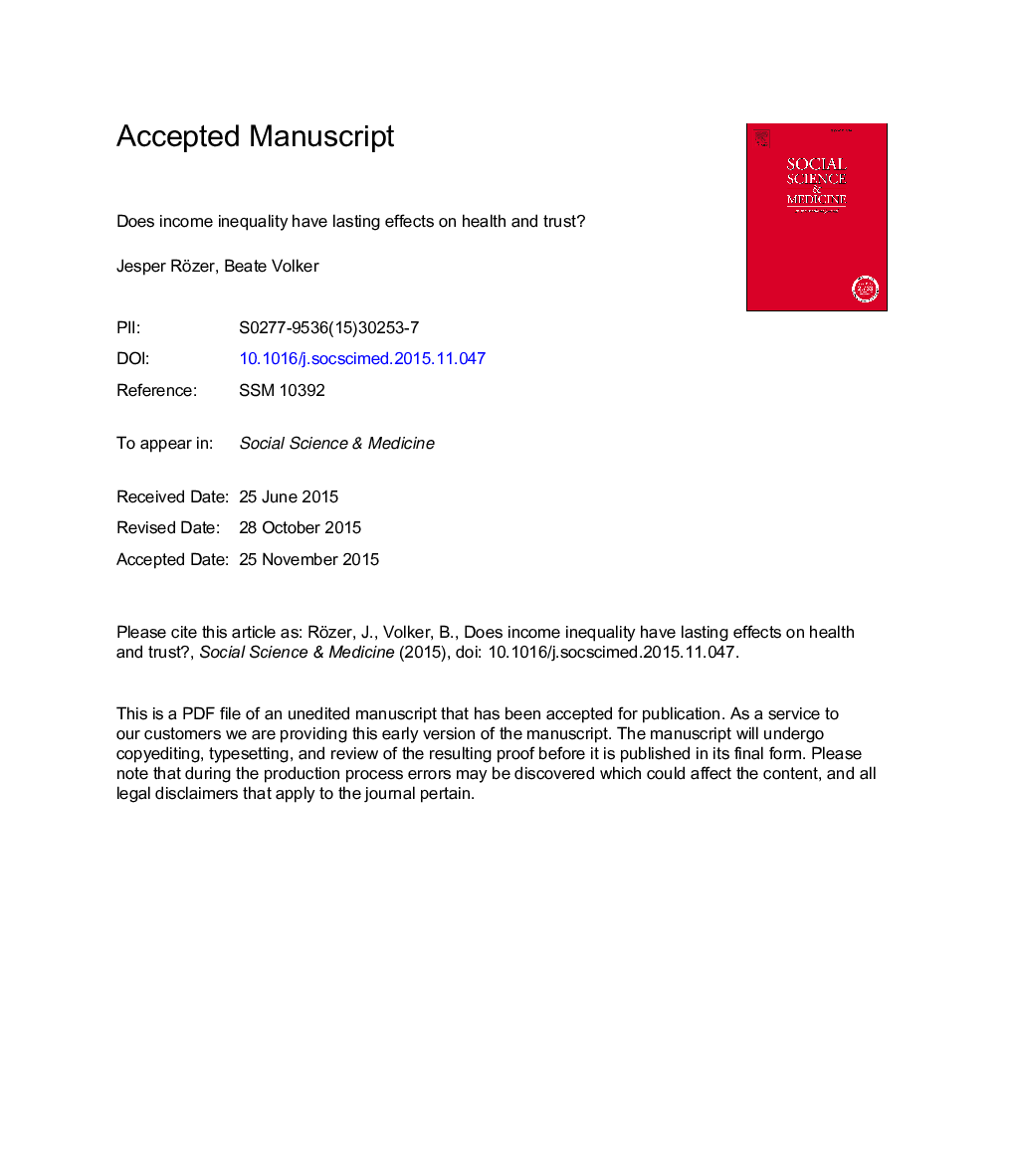| Article ID | Journal | Published Year | Pages | File Type |
|---|---|---|---|---|
| 7330871 | Social Science & Medicine | 2016 | 35 Pages |
Abstract
According to the income inequality hypothesis, income inequality is associated with poorer health. One important proposed mechanism for this effect is reduced trust. In this study, we argue that income inequality during a person's formative years (i.e., around age 16) may have lasting consequences for trust and health. Multilevel analyses of data from the combined World Values Survey and European Values Study that were collected between 1981 and 2014 support our prediction and show that income inequality is associated with ill health in young adults, in part because it reduces their social trust. The negative consequences of income inequality remain stable for a substantial period of life but eventually fade away and have no effect after age 36.
Related Topics
Health Sciences
Medicine and Dentistry
Public Health and Health Policy
Authors
Jesper Jelle Rözer, Beate Volker,
